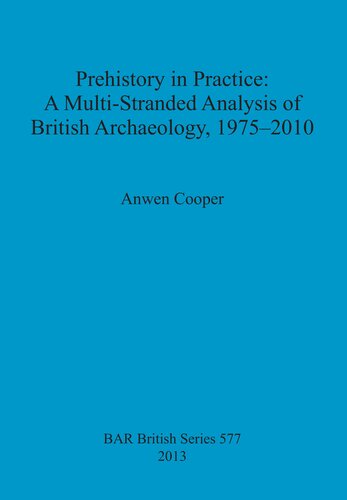

Most ebook files are in PDF format, so you can easily read them using various software such as Foxit Reader or directly on the Google Chrome browser.
Some ebook files are released by publishers in other formats such as .awz, .mobi, .epub, .fb2, etc. You may need to install specific software to read these formats on mobile/PC, such as Calibre.
Please read the tutorial at this link: https://ebookbell.com/faq
We offer FREE conversion to the popular formats you request; however, this may take some time. Therefore, right after payment, please email us, and we will try to provide the service as quickly as possible.
For some exceptional file formats or broken links (if any), please refrain from opening any disputes. Instead, email us first, and we will try to assist within a maximum of 6 hours.
EbookBell Team

4.8
44 reviewsThis study examines developments in British archaeology over the last 30 years or so (between 1975-2010), focusing in particular on transformations in prehistoric research. Ultimately it seeks to foreground the extent to which recent historical developments (at all levels of the discipline and in various working contexts) are implicated in contemporary research practices. Advocating the need for taking a multi-stranded and interdisciplinary approach, the author consulted a range of sources – digital archives, documentary and oral material – and draws on ideas from archaeology, sociology, anthropology and oral history. Through a detailed analysis of a leading disciplinary newsletter, key concerns are highlighted which have shaped archaeological practice over this period, and how particular roles and relationships have been defined and developed. By examining records and primary research outcomes of British prehistoric fieldwork, the writer develops a thorough understanding of how both data production and accounts of British prehistory have transformed. Based on evidence from 'life-history' interviews undertaken with prehistorians across the discipline, themes are explored that connect the diverse experiences of these practitioners: the notions that archaeology has undergone a process of 'professionalisation' over this period, and that it is chronically (and indeed increasingly) 'fragmented' socially. The author considers not only the varied ways in which British prehistorians have understood these issues,but also how such beliefs actually operate to shape research practices.